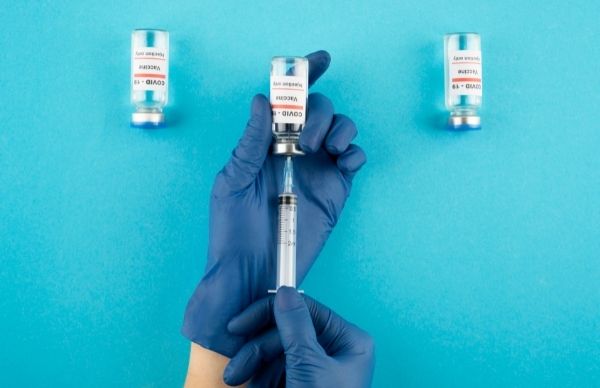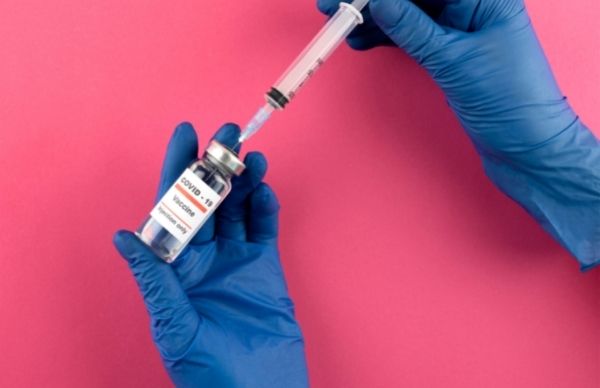Just In
- 12 min ago

- 3 hrs ago

- 10 hrs ago

- 11 hrs ago

Don't Miss
- Sports
 IPL 2024: LSG vs CSK Award Winners, Man of The Match, Post-Match Presentation, Scorecard & Records
IPL 2024: LSG vs CSK Award Winners, Man of The Match, Post-Match Presentation, Scorecard & Records - News
 Chinese President Xi Jinping Orders Biggest Military Reorganisation Since 2015
Chinese President Xi Jinping Orders Biggest Military Reorganisation Since 2015 - Education
 Exam Pressure Does Not Exist; Studying Punctually is Crucial; Says Aditi, the PSEB 2024 Topper
Exam Pressure Does Not Exist; Studying Punctually is Crucial; Says Aditi, the PSEB 2024 Topper - Movies
 When Karan Johar Revealed Sara Ali Khan And Janhvi Kapoor Once Dated Siblings On KWK 7, Guess Who?
When Karan Johar Revealed Sara Ali Khan And Janhvi Kapoor Once Dated Siblings On KWK 7, Guess Who? - Finance
 Reliance, ONGC, Tata, Adanis: Energy Stocks Didn't Get The Memo Of Bears, Up 12% In 30-Days; 10 Stocks To BUY
Reliance, ONGC, Tata, Adanis: Energy Stocks Didn't Get The Memo Of Bears, Up 12% In 30-Days; 10 Stocks To BUY - Automobiles
 Suzuki Swift Hatchback Scores 4 Star Safety Rating At JNCAP – ADAS, New Engine & More
Suzuki Swift Hatchback Scores 4 Star Safety Rating At JNCAP – ADAS, New Engine & More - Technology
 Dell Introduces AI-Powered Laptops and Mobile Workstations for Enterprises in India
Dell Introduces AI-Powered Laptops and Mobile Workstations for Enterprises in India - Travel
 Journey From Delhi To Ooty: Top Transport Options And Attractions
Journey From Delhi To Ooty: Top Transport Options And Attractions
India's First mRNA Vaccine Against COVID: 90% Effective; Can Be Used For Malaria, Dengue Etc.
Vaccines are designed to prevent infection by preparing the body to resist foreign invaders (bacteria, viruses, and other pathogens). In all vaccines, a harmless piece of a particular bacteria or virus is introduced into the body, which produces an immune response. The majority of vaccines consist of weakened or dead microbes or viruses.
However, Messenger RNA (mRNA) vaccines use a molecule instead of a part of an actual bacteria or virus. A messenger RNA is a type of RNA necessary for the production of proteins. A cell's mRNA uses information from genes to create a blueprint for making proteins. As soon as a cell has finished making a protein, it breaks down its mRNA. Vaccine mRNA does not enter the nucleus and does not alter DNA [1].

This article contains the following:
- How Do mRNA Vaccines Work? What About The Previous mRNA Vaccines?
- When Will The New mRNA Vaccine Be Available In India?
- How Is The New mRNA Vaccine 'Better' Than Others?
- What Are The Benefits Of mRNA Vaccines?
India's First mRNA Vaccine Against COVID-19: What You Need To Know
The Center for Cellular and Molecular Biology (CCMB) has created India's first indigenous mRNA vaccine for COVID-19. The vaccine technology, which is 90 per cent effective against COVID-19 in a mouse model, may also be applied to other infectious diseases, such as malaria, dengue, and tuberculosis [2].
The new mRNA vaccine candidate is currently being tested for its effectiveness against a live novel Coronavirus infection in a preclinical study.
According to experts, these are the 'benefits' of mRNA vaccines [3]:
- A vaccine that contains mRNA can be effective against malaria or dengue
- mRNA vaccines are more cost-effective
- mRNA vaccine is promptly redesigned
How Do mRNA Vaccines Work?
Vaccines induce an immune response by delivering weakened or inactivated germs to the body but not mRNA vaccines. The mRNA vaccines use mRNA created in a laboratory to teach our cells how to make a protein, or even just a fragment of a protein, that triggers an immune response within our bodies. Immunity, which produces antibodies, protects us from becoming infected if a real virus is introduced into our bodies [4].

What About The Previous mRNA Vaccines?
Even though Pfizer and Moderna have developed mRNA vaccines for the prevention of COVID-19, the CCMB's mRNA vaccine technology was developed independently and without external scientific assistance. Moreover, it is not the same technology used in the mRNA vaccine developed by a pharmaceutical firm based in Pune, which is currently undergoing testing [5].
When Will The New mRNA Vaccine Be Available In India?
Currently, the mRNA vaccine candidate is still in the early stages of development and is undergoing preclinical trials to assess its efficacy. Due to this, the manufacturers have not stated when the vaccine will be available for purchase in the country.
How Is The New mRNA Vaccine 'Better' Than Others?
According to the scientists developing the vaccine, the indigenous nature of the vaccine, as well as the preclinical trial results, indicate that the vaccine technology could be adapted for other infectious diseases [6].
The technology permits quick turnaround and large-scale replication. As a result, the technology and process could be used to combat not only COVID-19 but also other diseases such as tuberculosis, malaria, and dengue.
-
 wellnessSome Short-Term Benefits Of Additional Booster Dose Of mRNA Vaccine In Health Workers: WHO
wellnessSome Short-Term Benefits Of Additional Booster Dose Of mRNA Vaccine In Health Workers: WHO -
 pregnancy parentingMysterious Pneumonia Outbreak In China: What Are The Long-Term Effects Of Pneumonia In Children?
pregnancy parentingMysterious Pneumonia Outbreak In China: What Are The Long-Term Effects Of Pneumonia In Children? -
 healthCan You Get Back COVID-Related Loss Of Sense Of Smell And Taste (Parosmia)? Looks Like You Can!
healthCan You Get Back COVID-Related Loss Of Sense Of Smell And Taste (Parosmia)? Looks Like You Can! -
 healthDid Covid-10 Vaccination Increase Risk Of Sudden Deaths In Young Adults? ICMR Finds This..
healthDid Covid-10 Vaccination Increase Risk Of Sudden Deaths In Young Adults? ICMR Finds This.. -
 wellnessDelhi Air Pollution, Air Quality Very Poor: Do Covid Masks Help Reduce Pollution Side Effects?
wellnessDelhi Air Pollution, Air Quality Very Poor: Do Covid Masks Help Reduce Pollution Side Effects? -
 healthNobel Prize 2023: Scientists Behind The COVID-19 mRNA Vaccines Wins
healthNobel Prize 2023: Scientists Behind The COVID-19 mRNA Vaccines Wins -
 healthWhat Is Disease X? 20 Times More Deadlier Than Covid 19; Can Cause 50 Million Deaths, Does It Have Vaccine?
healthWhat Is Disease X? 20 Times More Deadlier Than Covid 19; Can Cause 50 Million Deaths, Does It Have Vaccine? -
 healthCOVID-19 Vaccines and Heart Attacks: New Studies Show Different Results; What Are They?
healthCOVID-19 Vaccines and Heart Attacks: New Studies Show Different Results; What Are They? -
 healthDo You Pick Your Nose? Stop! It Can Increase COVID Risk
healthDo You Pick Your Nose? Stop! It Can Increase COVID Risk -
 healthEris Variant: WHO Alarms New Covid Wave; Should India Be Concerned About This Pandemic
healthEris Variant: WHO Alarms New Covid Wave; Should India Be Concerned About This Pandemic -
 healthVitamin D Deficiency Linked With Increased Risk Of Long COVID
healthVitamin D Deficiency Linked With Increased Risk Of Long COVID -
 healthCOVID Surge In India: Do You Need A COVID-19 Booster Shot?
healthCOVID Surge In India: Do You Need A COVID-19 Booster Shot?


 Click it and Unblock the Notifications
Click it and Unblock the Notifications



